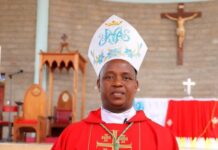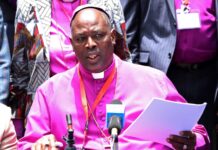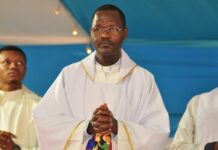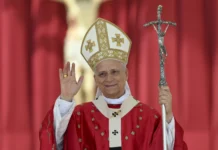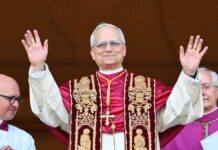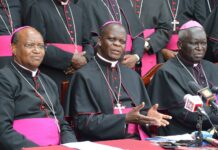(Reuters) – Britain is expected to announce the next Archbishop of Canterbury on Friday, with two women among the favourites to lead the Church of England and become the symbolic figurehead for 85 million Anglicans worldwide.
The 106th Archbishop will replace Justin Welby, who resigned last November over a child abuse coverup scandal, and will inherit an institution that has long grappled with theological schisms over the approach to gay Christian couples and the role of women in the church.
According to the bookmakers, the CoE could get its first woman Archbishop of Canterbury, a decade after it began consecrating women as bishops.
SOME CONSERVATIVE ANGLICANS OPPOSE WOMEN BISHOPS
Leading contenders include Bishop Rachel Treweek, the CoE’s first-ever female diocesan bishop, and Iranian-born Bishop Guli Francis-Dehqani, who came to Britain as a refugee with her parents following the 1979 Islamic Revolution.
Balancing expectations between conservative Christians in African countries – where homosexuality is outlawed in some nations – and their generally more liberal counterparts in the West has proven a difficult task for previous office-holders.
Appointing a woman archbishop could compound that. The conservative Global Anglican Future Conference, which says it represents the majority of Anglicans worldwide and had rejected Welby’s approach to homosexuality, believes only men should be consecrated as bishops.
Another frontrunner for next archbishop is Bishop Martyn Snow, who stepped away from leading the CoE’s process to bless same-sex couples, saying he could not unite the Church, while media reports have also named Pete Wilcox, Bishop of Sheffield.
APPOINTMENT FOLLOWS LENGTHY VETTING PROCESS
Unlike the Catholic Church, which elected Pope Leo just 17 days after Francis’ death, the CoE has taken nearly a year to make its decision due to a complex vetting process, led by a former spy and involving senior bishops and global representatives.
Appointing a woman to the Archbishopric would mark a historic shift for global religious institutions
While the Catholic Church, the world’s largest Christian denomination with 1.4 billion members, does not ordain women as priests, the CoE under Welby embraced female leadership, with women now making up close to a third of all bishops in England.
Jonathan Evans, a former head of the MI5 spy agency who was chosen by the government to lead the 20-strong selection commission, said in July he wanted to avoid a list of candidates where all were “white, Oxbridge, male and come from the southeast of England”.
The commission comprised 17 voting members, including five representatives from the global Anglican Communion, three from Canterbury, and six from the CoE’s governing body.
Under the rules, the commission makes a recommendation to the prime minister, who puts it forward to King Charles for consent. In Britain, the monarch has been supreme governor of the CoE since it broke from the Catholic Church under Henry VIII in the 16th century.
Predictions have been incorrect in the past, with Welby – a former oil executive – being a surprise pick when he was appointed to replace Rowan Williams in 2013.












